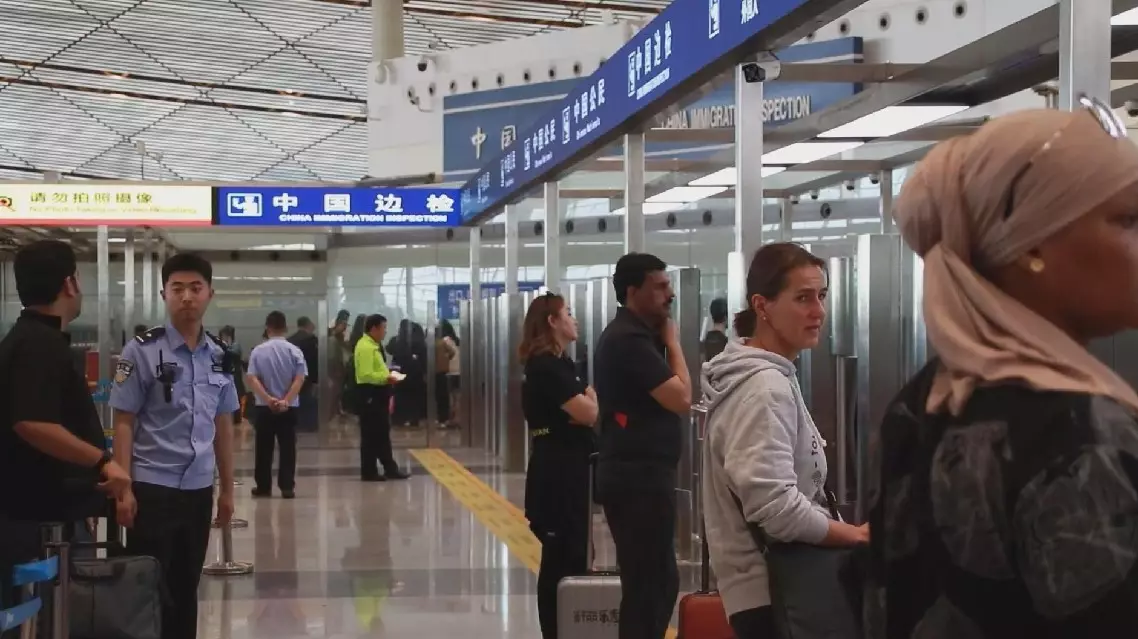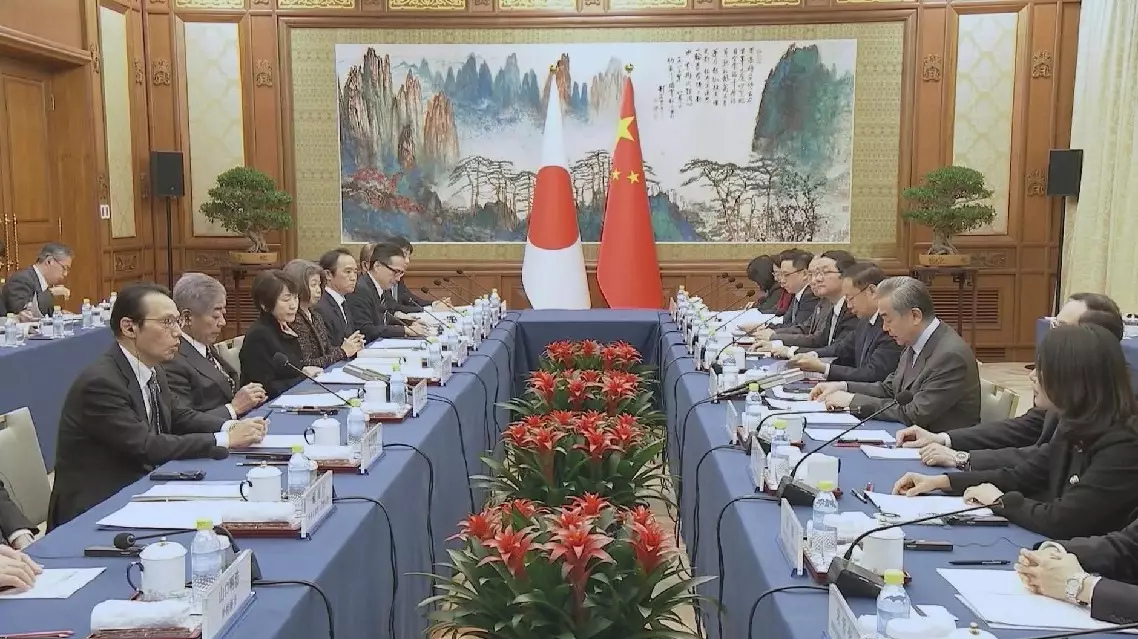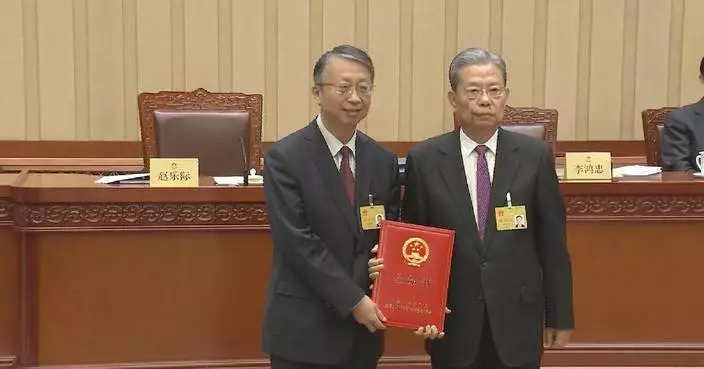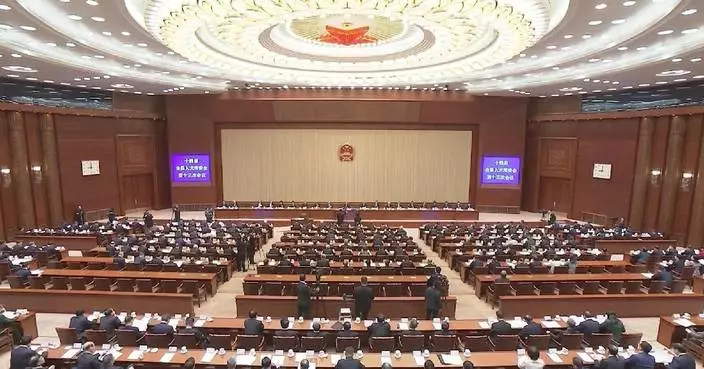Cities across China have seen increasing numbers of entry-exit trips made by foreign tourists since the beginning of this year, thanks to the implementation of visa-free entry and transit policies and various other preferential policies facilitating foreign tourists’ stay in China.
Border inspection agencies across the country recorded a total of 8.186 million entries made by foreign nationals during the third quarter of this year, representing a year-on-year increase of 48.8 percent, of which 4.885 million trips enjoyed the visa-free policy, up 78.6 percent from the same period of last year, according to the National Immigration Administration (NIA) on Friday.
Since the beginning of this year, China has been making continuous efforts to expand the coverage of its visa-free policy, while introducing a series of policies and measures to facilitate foreign nationals' stay in China.
In addition, China has further extended its visa-free policy for foreign travelers, now allowing visitors from 54 countries to breeze into 37 entry ports nationwide under the 144-hour visa-free transit policy.
According to statistics from the Beijing General Station of Exit and Entry Frontier Inspection, in the first three quarters of this year, more than 1.7 million inbound and outbound trips were made by foreign nationals through ports in Beijing, an increase of 156.6 percent year on year.
"I had a lovely trip to China as been three days here arrived on Sunday. And the visa-free policy was really easy. The coming through immigration was really seamless and was a really good experience," said a New Zealand tourist.
"We enjoyed our trips. We visited the Great Wall. We also went to the downtown in China. We've seen a few places. We did enjoy the visa-free program," said a Polish tourist.
In the first three quarters, east China's Jiangsu Province also seen a climbing number of foreign visitors, registering 272,000 entry-exit trips made by foreign tourists through ports across the province, up by 128.56 percent year on year. Among them, 236,000 trips enjoyed the visa-free policy, a 15-fold increase over the same period of last year.
Southwest China's Mount Emei, one of the most beautiful mountains in China, has become popular among foreign tourists this year. As of Thursday, the scenic spot has received nearly 90,000 foreign tourists.
In order to facilitate foreign tourists' trips, local public security bureau has set up service stations at railway stations and core scenic spots.
"In the next phase, we will continue to optimize and improve policies and measures related to visa-free transit, expand the coverage, increase the linkage areas and optimize the layout of opening up, to further enhance the value and attractiveness of relevant policies. We will also work actively with relevant authorities to make it more convenient for foreign nationals to come to China," said Zhang Ning, a spokeswoman of the NIA.
The NIA has opened an immigration service hotline to provide one-stop resolutions for foreign visitors, while the State Administration of Market Regulation and the National Bureau of Statistics have selected eight cities to pilot the opening of credit supervision data to facilitate mobile payments by foreign nationals in China.
Beijing is the first city in the mainland to open access for using foreign bank cards to take subway. Shanghai has put into use the one-stop service centers for foreigners in terminal 2 of Hongqiao International Airport and terminals 1 and 2 of Pudong International Airport, providing guiding manuals, transportation card sales and foreign currency exchanges.

Chinese cities see surging numbers of entry-exit trips by foreign nationals
The second meeting of High-Level Consultation Mechanism on People-to-People and Cultural Exchanges between China and Japan, was held in Beijing on Wednesday, with 10 important agreements reached there.
Wang Yi, a member of the Political Bureau of the Communist Party of China Central Committee and Chinese foreign minister, and Takeshi Iwaya, Japanese minister for foreign affairs, jointly attended the meeting.
The 10 agreement are as follows.
First, the two sides will promote youth exchange visits, and encourage and support study trips between the two countries.
Second, the two sides will deepen cooperation in the field of education, strengthen the exchange of overseas students, and support primary and secondary schools in the two countries to establish sister schools and institutions of higher education to carry out inter-school cooperation.
Third, the two sides will support tourism cooperation and introduce more facilitation measures to promote mutual visits between tourists from the two countries.
Fourth, the two sides will build more bridges for exchanges between sister cities and make good use of mechanisms and platforms such as the China-Japan Governor Forum, the China-Japan-ROK Cultural Exchange Year and the Culture Cities of East Asia to expand friendly exchanges at the local and non-governmental levels.
Fifth, the two sides will strengthen sports exchanges and cooperation, and support each other in hosting major sports events such as the 2025 Harbin Asian Winter Games and the Aichi-Nagoya Asian Games in 2026.
Sixth, the two sides will support continued cooperation in film, television, music, publishing, animation, games and other cultural and entertainment industries, exchange visits of high-level art groups, and support the translation and publication of classic works between the two countries.
Seventh, the two sides will strengthen exchanges and cooperation between media and think tanks, play a positive role in bilateral relations, and strive to improve public opinion and the environment for public opinion. The two sides will support exchanges and cooperation in new media and encourage exchanges between positive vibes of the two countries.
Eighth, the two sides will conduct exchanges between women's groups and share experience on promoting the common development of men and women. China invites Japan to attend the Global Leaders' Meeting on Gender Equality and Women's Empowerment to commemorate the 30th anniversary of the Fourth World Conference on Women.
Ninth, the two sides will build the World Expo 2025 in Osaka, Kansai, into a platform for exchanges and friendship between the two peoples. China supports Japan in hosting the expo, while Japan welcomes China's participation and will provide assistance in the preparation and operation of the China Pavilion.
Tenth, the two sides will hold the third meeting of China-Japan high-level consultation mechanism on people-to-people and cultural exchanges in Japan in due course.
Noting that next year marks the 80th anniversary of the victory in the Chinese People's War of Resistance Against Japanese Aggression and the World Anti-Fascist War, Wang said that the purpose of remembering this history is to draw lessons from it and cherish the hard-won peace.
China hopes and believes that Japan can once again demonstrate its determination for peaceful development and work with China to promote the sound and stable development of China-Japan relations in the spirit of facing history squarely and looking to the future, said Wang.
Iwaya said Japan is willing to work with China to improve the quality of people-to-people exchange projects, deepen exchanges between sister cities and take more measures to facilitate personnel exchanges.

China, Japan reach 10 agreements on people-to-people, cultural exchanges










